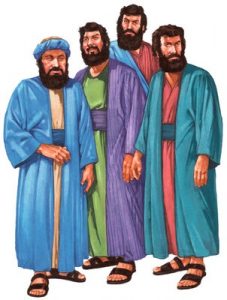
Join It Is Written Sabbath School host Eric Flickinger and this quarter’s author, Dr. Jiří Moskala, as they provide additional insights into this week’s Sabbath School lesson.”
 (0)
(0)Source: https://ssnet.org/blog/9-living-the-law-it-is-written-discussions-with-the-author/


